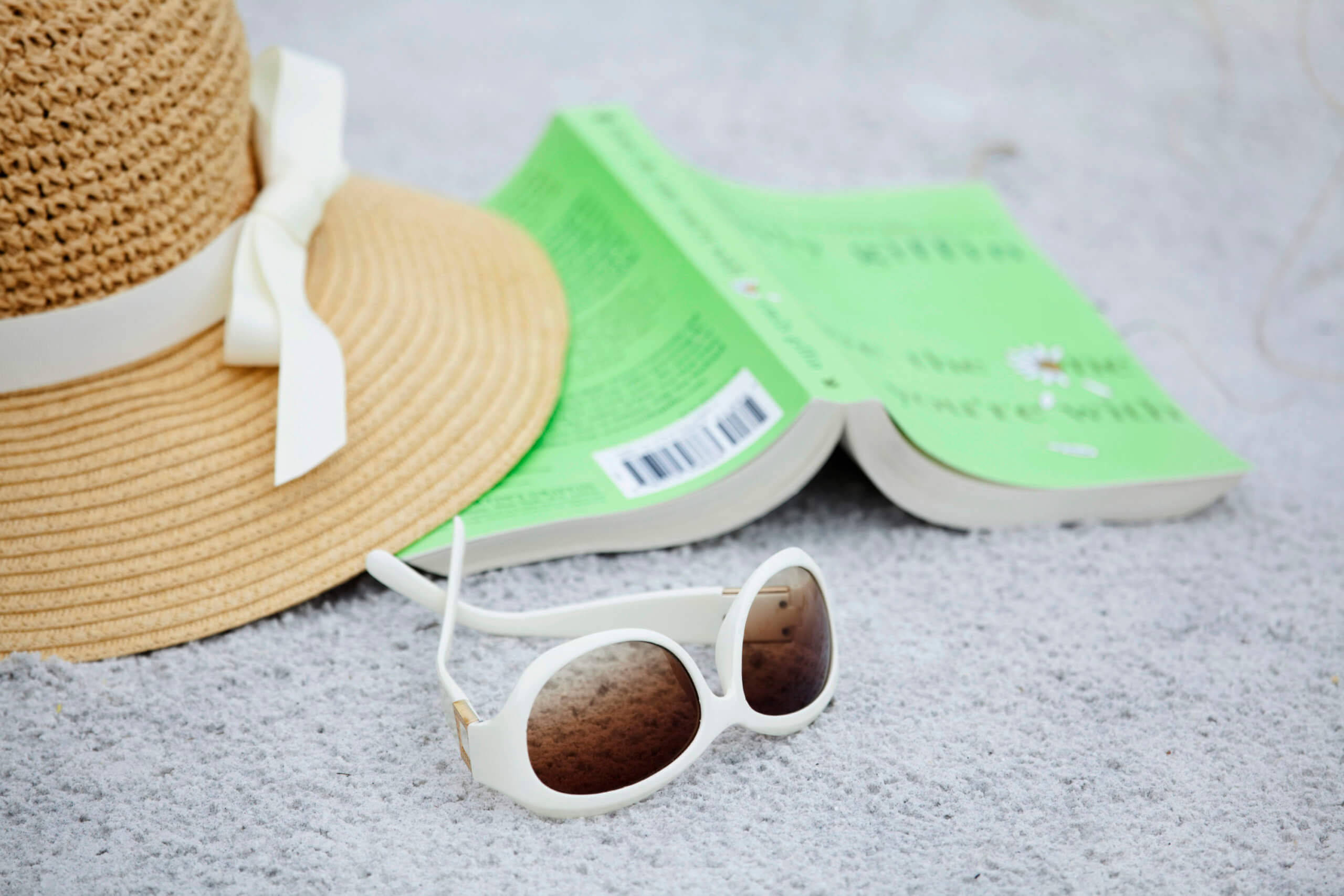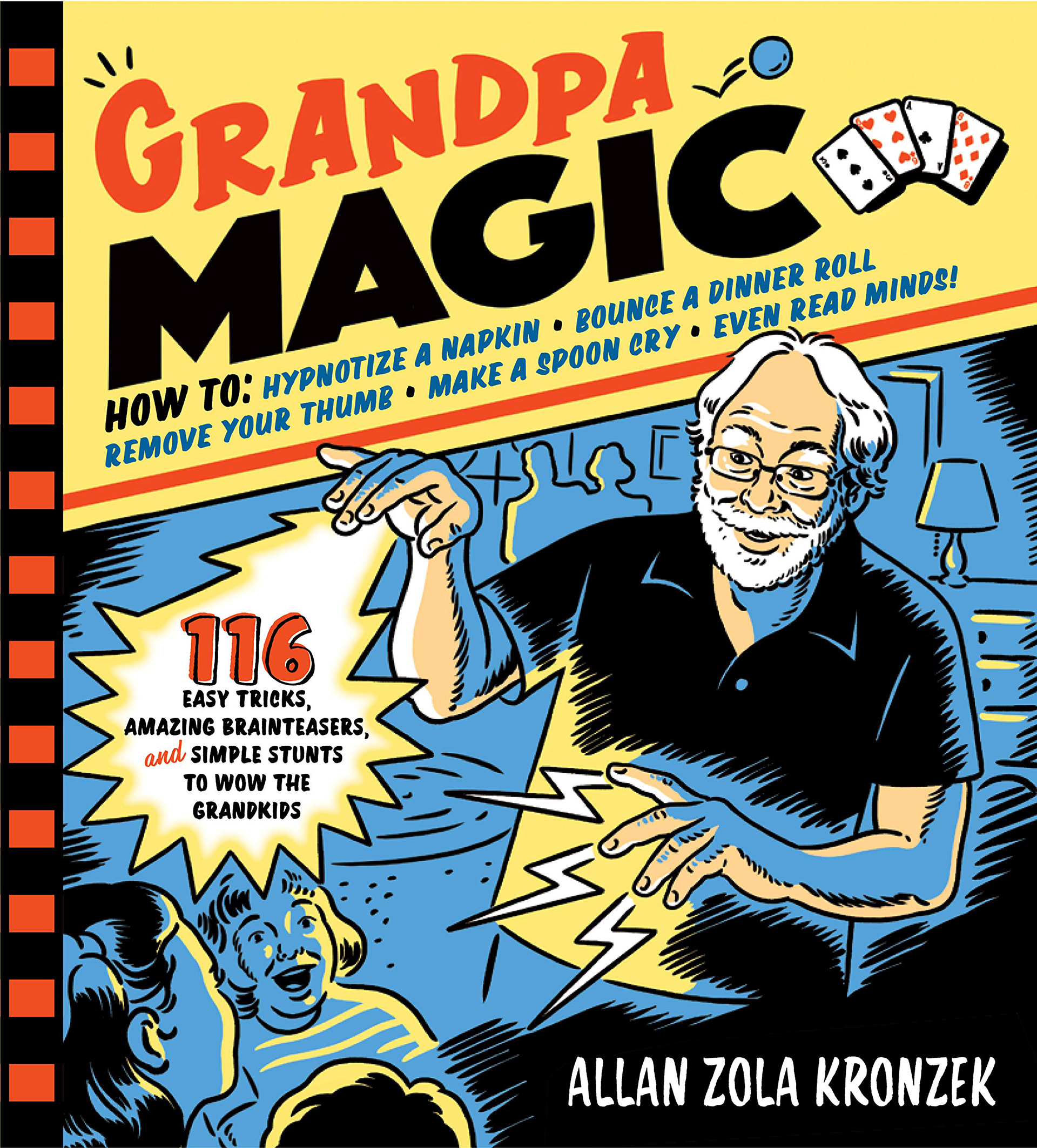Grandpa Magic Aims To Reconnect Generations


And now for something a little different with the holidays coming on — Grandpa Magic by Sag Harbor author, educator and professional magician Alan Zola Kronzek. Hello grandparents, here is true magic: a book about the illusory art of doing tricks that seem to suggest supernatural powers that will work wonders after all — namely, get the kids’ heads out of their digital devices for a while to connect live with those who love them.
Kronzek’s hope, he says in a delightful, breezy introduction, is to engage kids in an imaginative world full of mystery, secrecy, and surprise and have fun with older adults — grandmas are invited as well as grandpas, and, of course, parents, too. “So, there you are,” Kronzek says, “sitting around the table with the family. The grandkids are glued to their devices. So are their parents. Everyone appears to be enchanted — and not in a good way. How do you break the spell?”
“Counter-magic” to the rescue — 116 amazing brain teasers, perplexing puzzles, and simple stunts that will wow kids of all ages, starting with toddlers!
Kronzek, who has been performing, writing, and talking about magic for decades, is a bestselling author whose fascination with illusion and tricks has extended to writing about the magical world of Harry Potter and the history of magic, not to mention poker. But it’s magic for children that has always caught his heart — and creative impulses. Grandpa Magic takes on all manner of tricks that need no special equipment and that can be done on the spur of the moment. These include tricks with coins, cards, toothpicks, utensils and more: “how to hypnotize a napkin, bounce a dinner roll off the floor, remove your thumb, make a spoon cry, even read minds.”
Straws get a chapter of their own, tricks that suggest telekinetic and magnetic powers. And did you know that one Marvin Chester Stone invented the modern drinking straw in 1888? Or that his dad invented the cheese press and washing machines? And do you know that in executing the “disgusting” trick of shoving a straw up your nose and pulling it from your mouth” you really don’t do it, though “it sure looks that way”?
A magician never tells, but if a grandchild really wants to know the secret so he or she can perform it, do “share.” You can even embellish — Kronzek includes all manner of tips, many boxed in a section called “But wait. . . there’s more.”
The three-toned descriptions are simple, the step-by-step illustrations whimsically attractive. Let it also be noted that Kronzek’s stand-in, The Great Zucchini, bears a striking resemblance to the author, including a wry signature smile. But it’s Kronzek’s tone that really sets this book apart. Kronzek’s presentation is at once affectionate, witty, humorous, sensitive, patient (he’ll wait while grandpa does some nimble practicing) and appreciative of what it means to be young.
The ultimate magic is what Kronzek believes will occur when the generations get together, though parents anxious about educational value will obviously like noting that the tricks can reinforce motor and cognitive skills. Kronzek, though, has broader, deeper, and wiser goals. “Mentoring a kid in magic is different from sharing any other pursuit,” he writes in the introduction. Magic is more than a collection of tricks and secrets. “It’s a rich, creative art with affinities to acting, writing, psychology, science, and math — all areas where the generations might connect.”
He starts with the under six set, “believers” he calls them, kids who will think Grandpa has magic powers, and extends through the “skeptics” — kids who have outgrown Santa and the Tooth Fairy. They especially will respond to the book’s last section of “mental mysteries,” wherein Zucchini takes deception to a new level. Not to mention the outrageous puns: Where do fish keep their money? In a riverbank. Penguins? In a snow bank. Dracula? In a blood bank. Grandpa? In a trust fund.
Yes, the kids are still obsessed with their electronic gizmos, but deep down, Kronzek says, “they crave real-world, in-person experiences. They want something live, something real, something special. Grandparents can provide, and magic can be the means. Performing magic is good for the soul. It builds confidence and self-esteem and is a proven way to coax shy ones out of the shadows and into the limelight.” And what if the kids are not interested? So what? Nothing ventured, nothing gained. And who knows. Though he doesn’t say so, this delightful book could also connect older adults with one another.



